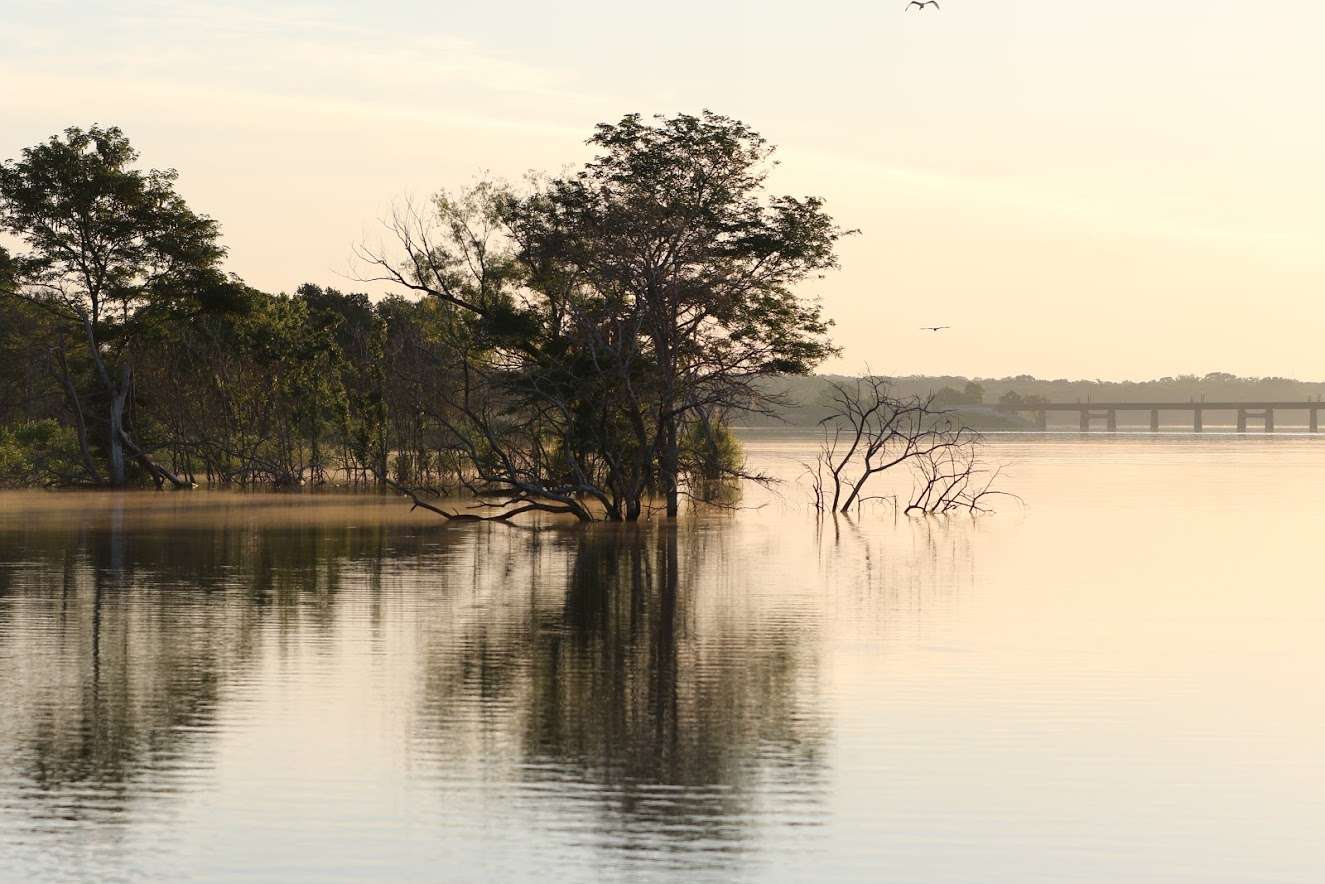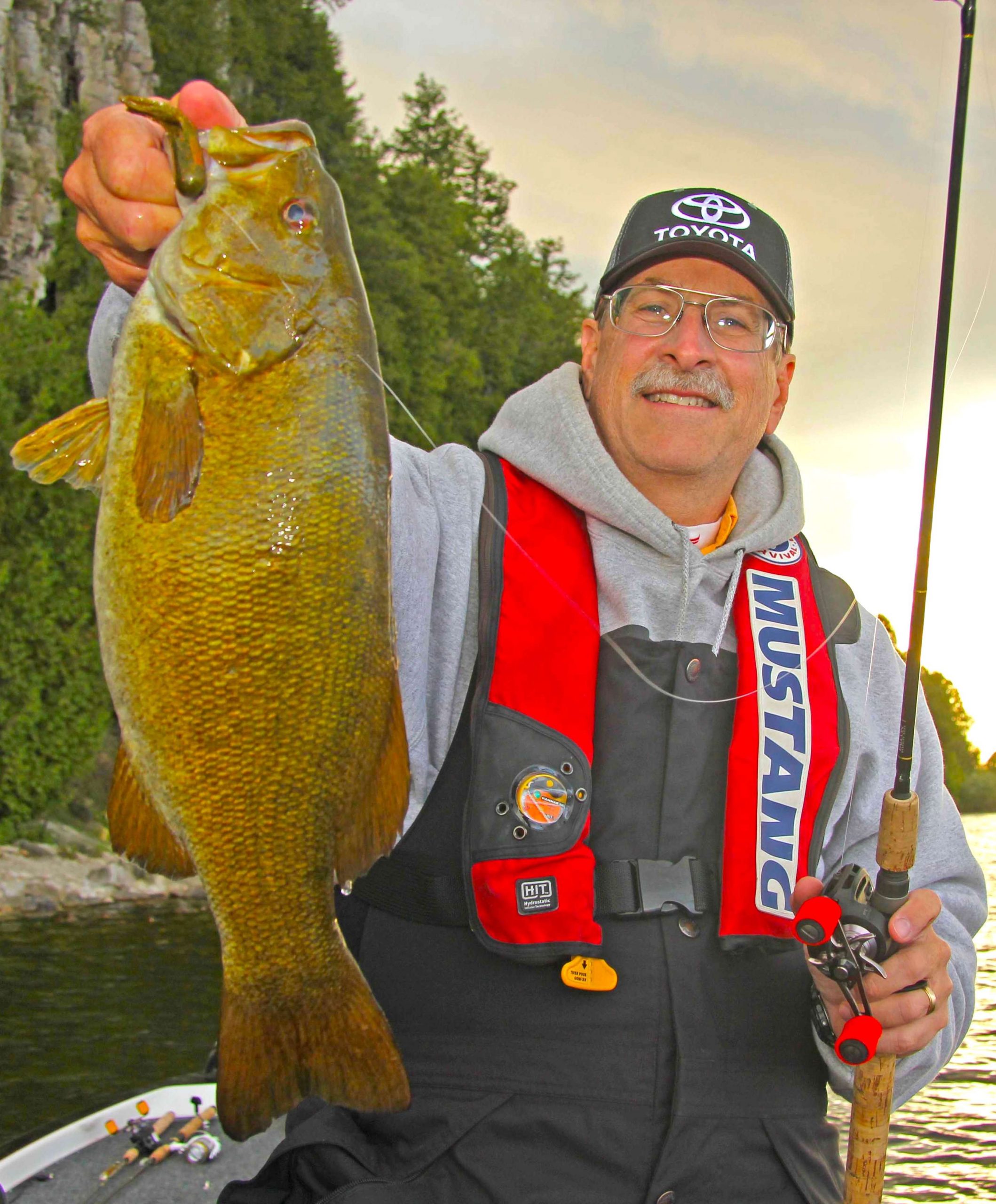
I shut off the outboard and lowered the trolling motor into the water. I eased down the shoreline looking at the stumps and patches of water willow. I pitched a spinnerbait parallel to a laydown that ran from the bank out into about 4 feet of water.
I could see the blades spinning in the clear water. Concentration… anticipation… reward! A fat 3-pounder darted from the shadows and smashed my bait. A quick battle, I lipped the fish, unhooked it and slipped it back into the water.
In an instant, a flood of emotions came over me. A 3-pounder is nothing to get choked up about, but this was place where I caught my first bass over 45 years ago. And this was the first time I had been back in over 30 years.
Why so long? I’d moved away from home when I went to college. I got a job in a different state. But most of all, when I did come back to visit and go fishing, I was lured away by the hot new reservoir just 20 miles down the road. The old lake just fell off my radar screen.
As I worked my way down the shoreline, I tried to remember what the lake looked like over 30 years ago. The once thick standing timber had been reduced to stumps. The rocky bottomed coves were now silted. But the magic was still there. The memories were still strong.
My teenage buddies and I taught each other to fish Fliptail and Mann’s Jelly Worms here. We learned to fish the old original Bomber crankbaits. We learned from Bassmaster Magazine and a guy named Bill Dance on TV.
I fished until it got almost too dark to see. I caught quite a few nice fish. No monsters, but enough to make me want to go back well before another 30 years passes. And it got me to thinking about why some lakes become forgotten fishing holes.
When I was in high school, this lake was relatively new. It was a booming bass fishery that attracted anglers from miles away. Catches of 50 bass a day were common. But over a few short years, we began to see the effects of overharvest on our little lake. Fishing pressure dropped dramatically as anglers left for more productive waters.
About that time, Ray Scott and B.A.S.S. were promoting the concept of catch-and-release. Unfortunately, that first-aid did not have an immediate effect. The fishing declined and so did the number of fishermen. The cycle of boom-and-bust that fishery managers had come to accept as the norm back then was playing out.
But over time, things changed. The message got through. Catch-and-release, reduced fishing pressure and changes in regulations and enforcement fostered a modest recovery. While you don’t see the 50-bass-a-day catches you once did, the lake has produced its share of double digit fish in the last 15 years. And more importantly, it has provided countless hours of fishing fun for those anglers that were not lured away to other lakes.
That day got me to thinking about a whole slew of other forgotten waters that I have visited over the years but had forsaken for newer hot spots. In these days of social distancing and restricted travel, this would be a great time to revisit some of those out-of-the-way places.
I bet there are some forgotten fishing holes where you live too. Advances in fishery management, different angler attitudes and changes in habitat and water quality may have helped once tired, old lakes become good bass fisheries again. Follow the appropriate health and safety guidelines and give them a try. Who knows what memories of your own you will stir up?





